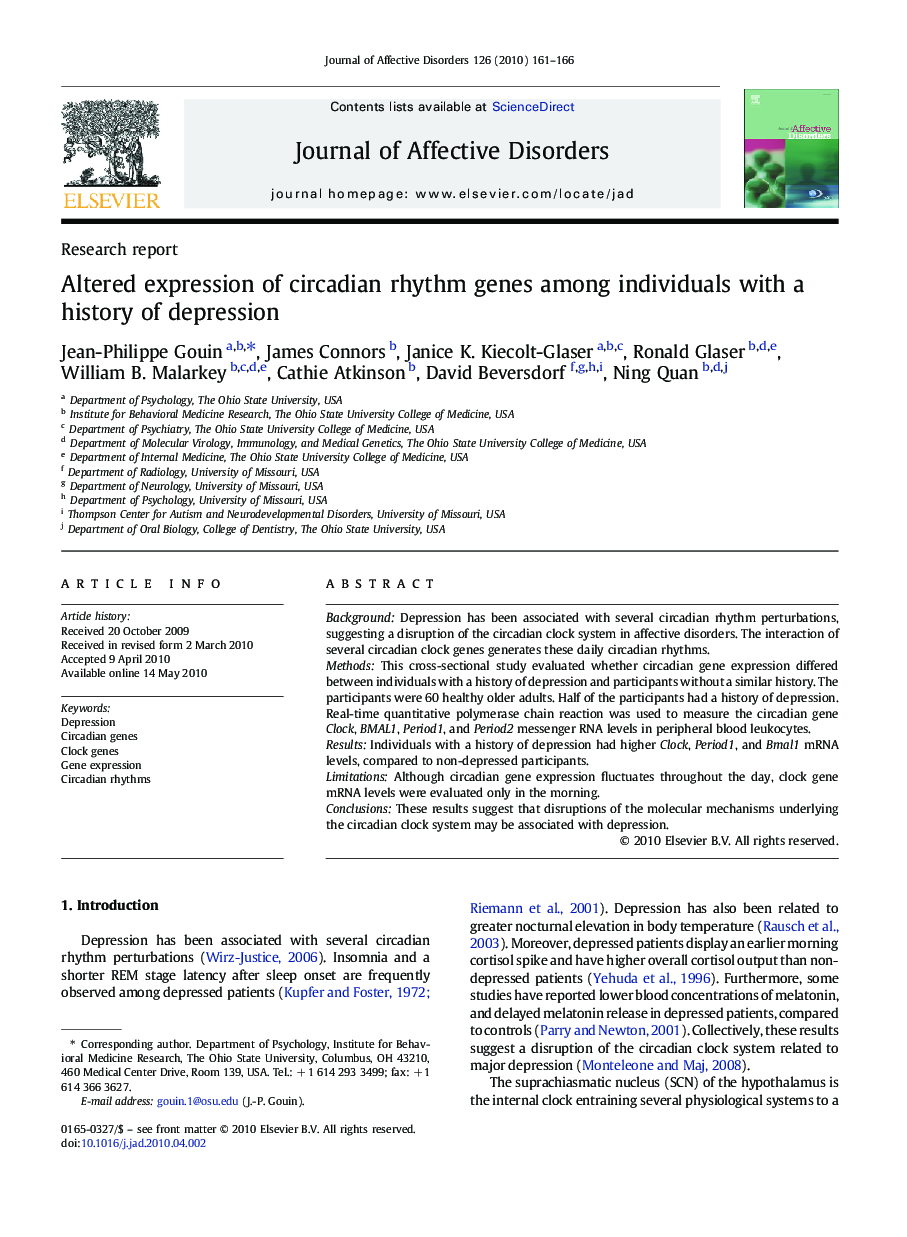| Article ID | Journal | Published Year | Pages | File Type |
|---|---|---|---|---|
| 4186777 | Journal of Affective Disorders | 2010 | 6 Pages |
BackgroundDepression has been associated with several circadian rhythm perturbations, suggesting a disruption of the circadian clock system in affective disorders. The interaction of several circadian clock genes generates these daily circadian rhythms.MethodsThis cross-sectional study evaluated whether circadian gene expression differed between individuals with a history of depression and participants without a similar history. The participants were 60 healthy older adults. Half of the participants had a history of depression. Real-time quantitative polymerase chain reaction was used to measure the circadian gene Clock, BMAL1, Period1, and Period2 messenger RNA levels in peripheral blood leukocytes.ResultsIndividuals with a history of depression had higher Clock, Period1, and Bmal1 mRNA levels, compared to non-depressed participants.LimitationsAlthough circadian gene expression fluctuates throughout the day, clock gene mRNA levels were evaluated only in the morning.ConclusionsThese results suggest that disruptions of the molecular mechanisms underlying the circadian clock system may be associated with depression.
